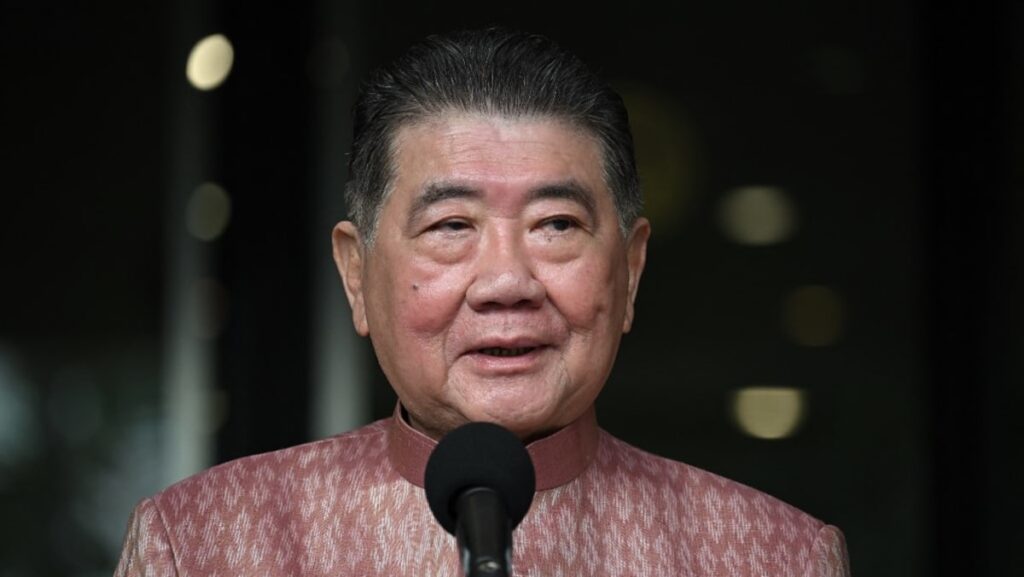SUBURBAN REVOLUTIONARY
Born in the suburbs of Bangkok, Phumtham was nicknamed “Auan”, meaning “Chubby”, by his parents.
He earned a political science degree from a top Thai university and joined the student movement that took to the streets in 1976, opposing the return of military dictator Thanom Kittikachorn.
His childhood nickname belied his slim-faced appearance in a black-and-white photo of the protests, showing him brandishing speech papers with a microphone in hand.
The uprising ended in a bloody crackdown known as the “Thammasat Massacre” that killed at least 40 students and remains today one of the country’s most notorious instances of protest bloodshed.
Unofficial estimates suggest the death toll could have been as high as 500, because live ammunition was used to quell the unrest.
Students from Thailand’s elite universities fled into the jungle to join guerilla movements.
When Phumtham became defence minister last year he faced a grilling by the conservative and pro-military establishment who accused him of being a card-carrying communist.
“I went to escape the violence,” he insisted. “It was not only me, there were other students too.”
Despite his protestations, his links to the movement earned him a second alias: “Big Comrade”.
Phumtham’s reputation has softened since his firebrand formative years, and he is now known as a composed and diplomatic operator.
He will step into the acting prime minister role after the Constitutional Court suspended Paetongtarn pending an ethics probe which could take months.
In the brief interim between the court decision and Phumtham being sworn in as part of a Cabinet reshuffle, transport minister Suriya Jungrungreangkit has been acting premier.
Read the full article here
